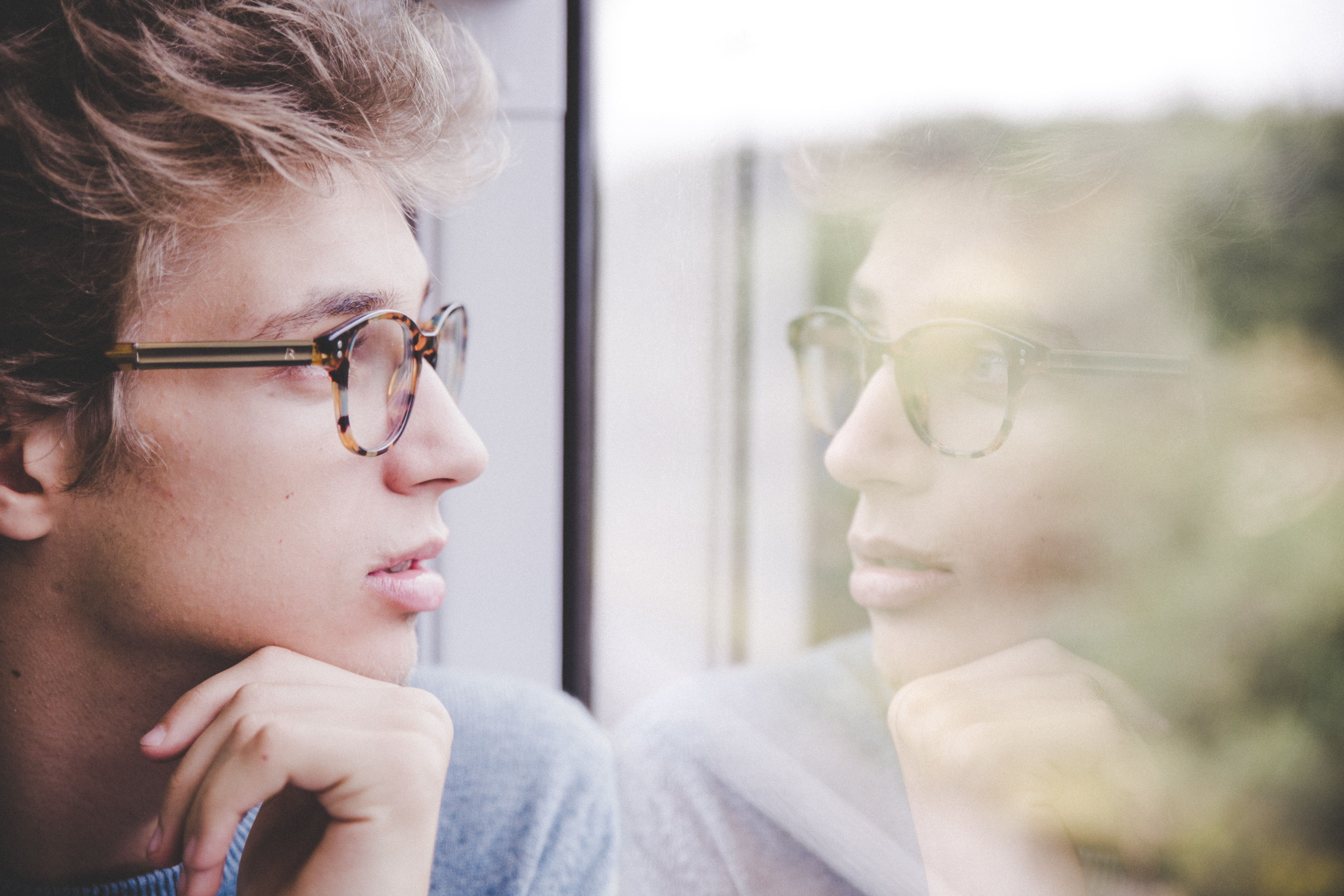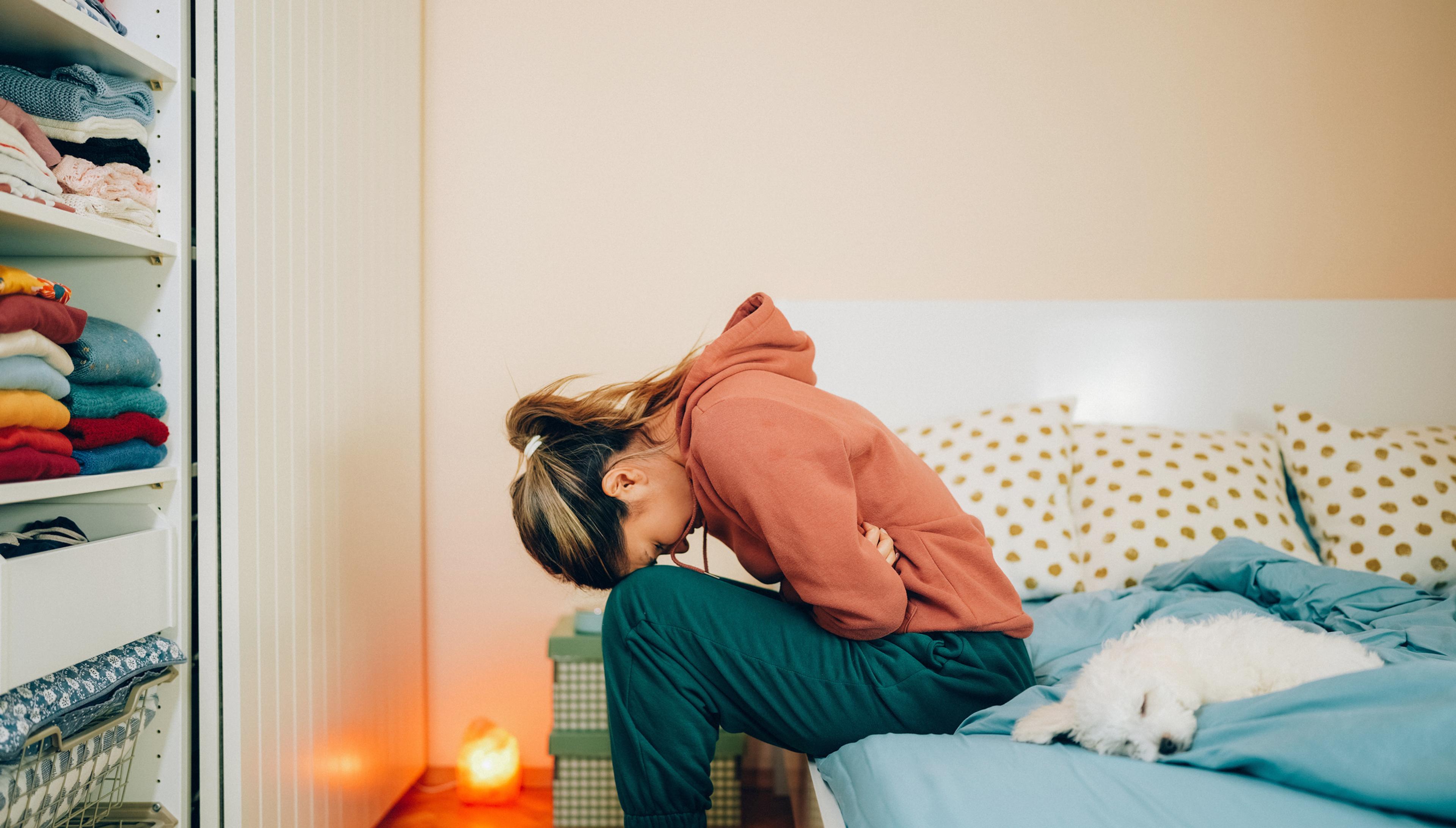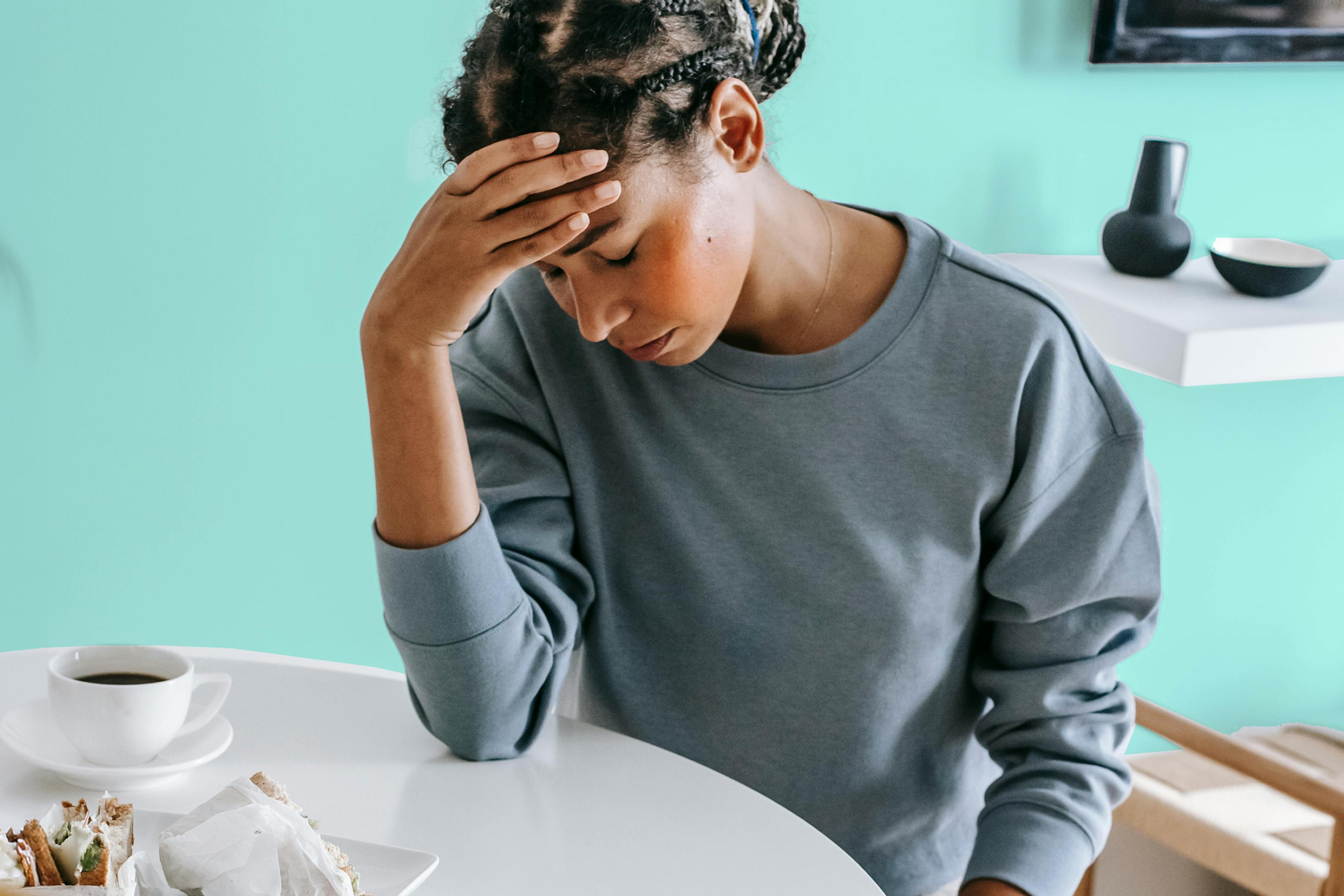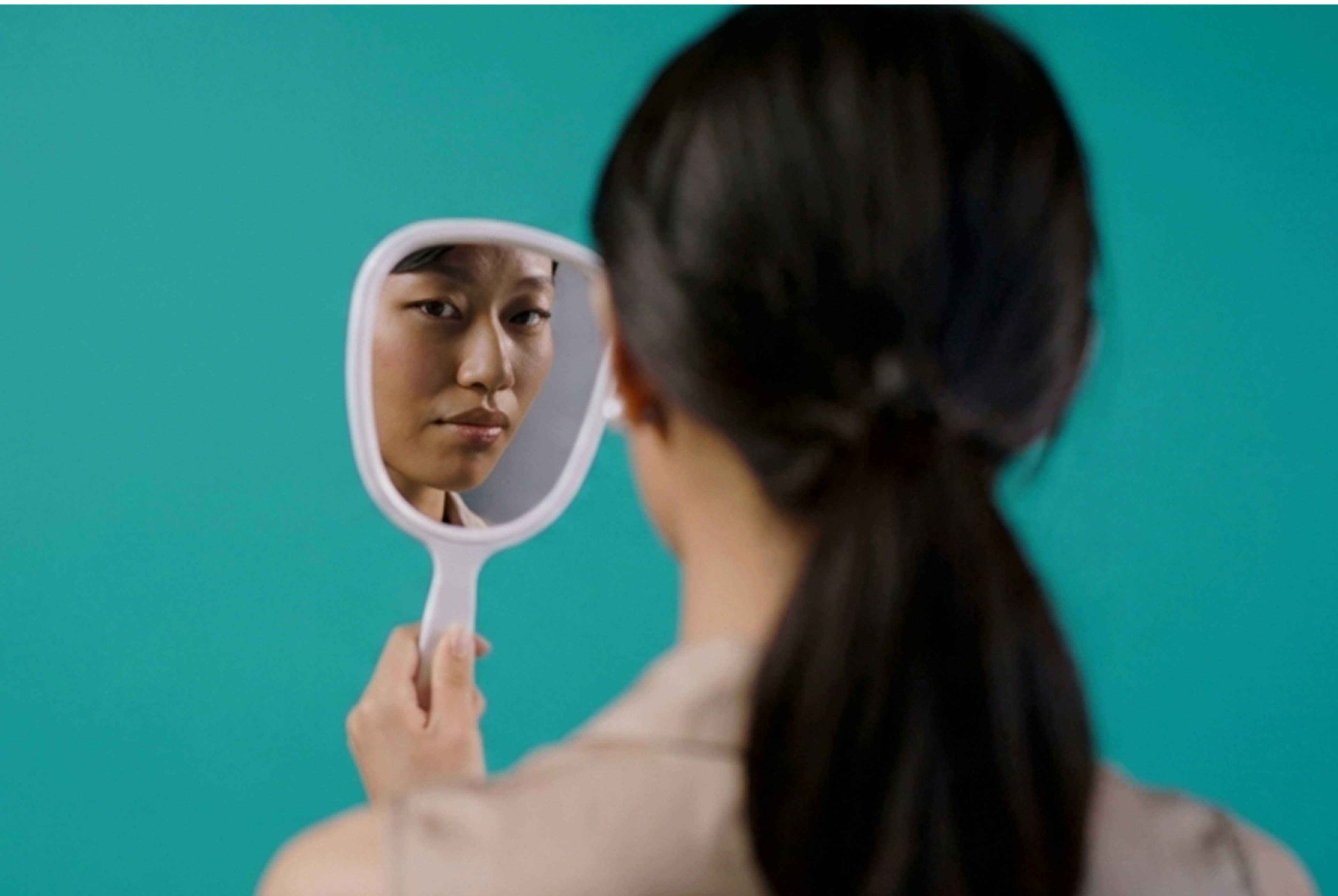

It’s no secret that harboring negative thoughts and attitudes about your physical appearance can contribute to the development of an eating disorder, but the reality is that negative body image affects most of us at some point, Research has shown that anywhere from 40% to 90% of women are dissatisfied with their bodies, and men are far from immune — up to 30% of men and 69% of male adolescents report body dissatisfaction. And none of this research even touches on the innumerable unique body image challenges facing trans and non-binary individuals. These numbers aren’t a sign of individual failing, but rather an inevitable result of the culture we live in, which is steeped in diet culture and singularly focused on a thin, largely unattainable body ideal.
Equip Senior Program Development Lead Ally Duvall says that negative body image can have serious consequences that extend far beyond a glimpse in the mirror or an “unflattering” photo. “Having a negative body image goes deeper than not liking how you look,” she says. “If we believe that we aren’t good enough, we don’t pursue our dreams the way we once wanted to. We don’t feel comfortable in relationships or have the brain space to communicate with loved ones. It affects nearly all of us, as we live and breathe in a society designed to control our bodies”
The good news is that while body image issues may be common, they’re not inevitable and don’t have to be permanent. “None of us were born hating our stomachs, hoping for a thigh gap, or wishing we had clearer skin,” Duvall says. “These are learned thoughts that have been hammered into our minds, much like other deeply rooted systems of oppression.”
Understanding all of this may help debunk the myth that negative body image is an unavoidable or unimportant concern; in fact, feeling bad about your physical appearance can contribute to serious health issues (including eating disorders) and significantly hinder your quality of life. Here are some less obvious ways body dissatisfaction may be holding you back—and how to start building body confidence to reclaim the life you deserve.
5 Ways Negative Body Can Affect Your Life
1. It may hold you back in your career
While we’d like to think our society has made major strides in accepting humans for the quality of their character over their physical appearance, there is still work to be done. Many people are still being made to feel bad about their bodies, even in the workplace—and that kind of discrimination can have serious consequences.
“The diet industry is a multi billion dollar business. People with eating disorders aren’t the only people falling victim to it,” says Equip Therapist Ashley Isenhower. “Negative body image might impact someone’s effort to apply for a promotion or ask for a raise. In several states, it is legal to fire someone for being ‘overweight.’”
For those who are “straight-sized” or at lower weights, negative body image can impair their career goals in other ways, like a lack of self-confidence or a preoccupation with how their body looks that makes it difficult to fully engage in work.
2. It may keep you from feeling safe or free in your clothing choices
Clothing isn’t frivolous. Feeling seen and represented by the fashion industry can go a long way toward helping you feel comfortable and liberated rather than constrained and repressed. Expressing your identity through your clothing can make you feel more confident in who you are, and holding yourself back in order to wear what you’ve been told is “flattering” or “appropriate” for your body can mute your ability or desire to shine.
“People wear clothes that they believe they should wear rather than clothes that make them feel comfortable and bring them joy,” Equip Peer Mentor Nicky England says.
3. It may make you feel like you’ll never measure up
It’s no secret that social media can be a major source of harmful body image messaging, and content rooted in comparison can perpetuate feelings of unworthiness beyond the physical.
“I find ‘What I Eat in a Day’ or ‘My 9-5’ videos sneakily harmful,” Duvall says, explaining that when we see someone that fits society’s thin ideal, we may feel subconsciously compelled to adopt their behaviors. “Although they might not be directly telling you to do a workout or eat a specific food, we see a romanticized version of their supposed daily life. This can make us feel even more inclined to adapt to what they do, the products they use, or the way their body looks often without even knowing we are being marketed to.” And, of course, because your body will never look like someone else’s, striving to match someone else’s appearance or physique will always leave you feeling worse about your own body.
4. It may prevent you from feeling present
For many, feeling grounded and present in the current moment can help prevent or decrease the intensity of anxious thoughts and cultivate more feelings of gratitude, happiness, and connectedness with others. When negative body image thoughts are front and center, it can be difficult to experience the present moment and avoid getting swept up in worries and fears.
“Because of the value society places on outward appearance, negative body image tells us we’re not enough: not good enough for the promotion; not pretty/smart/funny enough for the relationship; not a good enough friend, parent, sibling,” Isenhower says. “This can cause us to pull away from others and isolate, whether we mean to or not.”
England agrees, adding that the time and energy investment required to entertain thoughts of body dissatisfaction inevitably take away from more joyful experiences. “People spend so much time worrying about how their bodies look that they miss out on enjoying some beautiful moments in life, like meals with loved ones,” England says.
5. It may hurt your romantic life
Romantic love certainly isn’t a necessity or desire for every person, but for those who do want to pursue a relationship, negative body image can create a barrier to vulnerability and connection.
“We often hear the phrase, ‘we accept the love we think we deserve,’ and in a similar vein, I find that having a negative body image can prevent us from connecting with our partners in ways we might not even be aware of,” Duvall says. “Feeling like we are not enough and unworthy of care unless our bodies look a certain way can seep into the way we relate to our significant others. It often shows up as questioning and fear: ‘What if they don’t truly love me? What if they’re just saying it but don’t mean it? Who would want to be with someone like me?’ All of these what-ifs can keep us from the love we’re surrounded with and the care we inherently deserve.”
How to start building a more positive body image
While negative body image can feel inescapable, there are tactics and strategies to help decrease its power. Here are some tips for quieting body dissatisfaction thoughts and working toward feeling happier and healthier in your skin:
1. Be curious. “Once we can pause and ask ourselves about our relationship with our body, we can identify what we may be avoiding—your body, reflection, certain events, clothing—and instead, try to incorporate body-approaching behaviors, like compassion towards your body, trying different types of clothes you’ve wanted to wear, and engaging in activities you love,” Duvall says.
2. Curate your social media. “Unfollow accounts that make you feel bad about yourself,” Isenhower says. “And follow accounts that make you feel validated.”
3. Surround yourself with people with a variety of different body types. “This could be on social media or in your daily life,” England says. “This normalizes body diversity and can help with challenging the thin ideal.”
4. Make space for grief. “When we embark on body image work, we need to hold space for grieving: you may miss the experiences you had in a different sized body or grieve the image you always pictured for yourself—but that grief is another piece of healing,” Duvall says. “We often run from negative emotions. But in these moments of body grief, we can make space for the new relationship we’re building while holding space for what used to be.”
5. Try doing things your negative body image says you can’t do. “This could look like wearing a bikini to the beach or letting yourself have your picture taken,” England says. “It could really be anything that you struggle to allow yourself to do with your current body image.”
6. Seek professional help. “Negative body image is so common, but it can definitely lead to disordered eating,” Isenhower says. “Being able to talk it through with an objective third party can help you develop coping skills to combat negative self talk.”
7. Celebrate the joy. “This could be by following people that look more like you on social media and seeing them live full, authentic lives; making space to do an activity you used to love—I highly recommend singing your favorite childhood songs—or spending time with your friends and community,” Duvall says. “Finding pockets of joy throughout your body image journey can be so pivotal in feeling more true to yourself and remembering why you want to challenge the appearance ideals.”
- Stice, Eric, and Heather E Shaw. “Role of body dissatisfaction in the onset and maintenance of eating pathology: a synthesis of research findings.” Journal of psychosomatic research vol. 53,5 (2002): 985-93. doi:10.1016/s0022-3999(02)00488-9
- Quittkat, Hannah L et al. “Body Dissatisfaction, Importance of Appearance, and Body Appreciation in Men and Women Over the Lifespan.” Frontiers in psychiatry vol. 10 864. 17 Dec. 2019, doi:10.3389/fpsyt.2019.00864
- Frederick, D.A. & Mindthoff, Amelia & Gruys, Kjerstin & Daniels, E.A.. (2012). Surveys and the Epidemiology of Body Image Dissatisfaction. Encyclopedia of Body Image and Human Appearance. 2. 766-774. 10.1016/B978-0-12-384925-0.00121-8.







